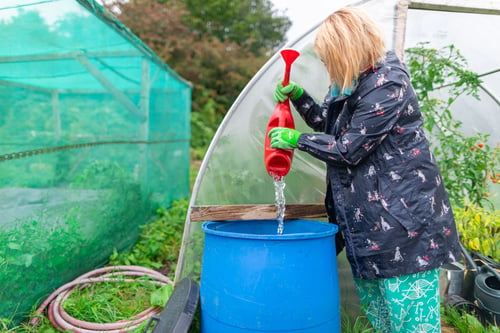The innovative mind
We believe innovation and creative thinking is more than just a new technology or gadget – it’s a mindset.
Our philosophy

The Quest
We are looking to solve a number of innovation challenges and we want your help to get there.
Water treatment
Effective water treatment is at the heart of what we do. We are seeking a step change in:
- Feed forward control.
- Online, real-time water quality instrumentation.
- Invasive species management – eg. zebra mussels.
- Zooplankton management.
- Management of iron level in networks.
Resources and environment
Effective stewardship of the environment we live in is of critical importance to us. To help us do this we are interested in progressive improvement in.
Networks
Our network assets are spread all over our geography. We are always looking for better ways to ensure their integrity and minimise disruption caused by their maintenance.
Pursuit of efficiencies
Operating efficiently helps us keep our costs down for customers. We are always looking for ways to optimise our operation and welcome solutions for all areas of our business: back office, front office, construction, operations, maintenance and more.
Customer service excellence
We are proud of our customer service and always strive to deliver a great experience for anyone who comes into contact with us. We are interested in solutions to help us pursue customer service excellence in whatever shape or form.
Acts of Genius
Take a look at some of the amazing things happening round Bristol regarding innovative technology...
Robotics
Imagine a home where some of those boring tasks, the things we do every day, are automatic. Imagine if we didn’t have to think about them. Imagine they just happened. We’d love to see that Wallace & Gromit breakfast machine be an actual thing! And those mundane tasks can become even more boring in the work place.
Robotic Process Automation (RPA) has the ability to change to boring tasks and automate them, mimicking human activity. Freeing us humans up to think, talk to other people, create new things, and generally reduce the pressure on us.
Aimee Skinner, Continuous Improvement Manager added: “A common misconception about RPA is that it is used purely to save costs, by replacing humans. The reality is that we want to apply it to repetitive and onerous tasks, that can eat up valuable time in our day. The main benefit is that it frees up time for more beneficial, arguably more enjoyable, work.”
In May 2018, we, along with Baringa Partners, successfully introduced RPA to the processes of creating invoices for the Non-household market. We automated the process of downloading water statements from market operator, MOSL, and creating the invoice. We have seen up to a 75% time saving for these tasks, creating capacity and future-proofing the process for the predicted rise in the Non-Household retail water market. Admittedly, at first, this did free up Andy to start making some really bad Dad jokes… so there are downfalls. We are so in love with what RPA can do for us now the first start-up business to join our business incubator, The Workshop, is a RPA consultancy called Hackett Consulting. Dillan, the founder of Hackett Consulting, is tailoring the deployment of RPA technology to the mid-market, where most RPA deployments are aimed at larger companies. Find out more about Dillan by reading his regular blog, and you can read more about The Workshop visiting the link below. Finding new and innovative approaches to our work ensures we can continue to deliver a reliable service that meets the needs of our customers.
Biodiversity Index Score
We have our customers, those that use our water. We have businesses that we supply. We touch on the lives of pretty much everyone in the area. But our customer base is bigger than that. What about the honeybees, the bats, the ospreys, the crayfish, the eels! All these are our customers too, we need to look out for them.
Enter stage right Natural Capital Accounting, the process of calculating the total stocks and flows of natural resources and services in a given ecosystem or region. Enter stage left Bristol Water’s Biodiversity Index Score, the means of creating better habitats across our region. The Biodiversity Index essentially involves creating an overall numeric score for an area by combining ecological walkover results with habitat value assessments. It allows us to set environmental expectations for sites and we use it to brief staff carrying out work. We can give a numeric score to what we have and what we want to have.
So what does this mean in the real world? It means we can measure the environmental work we have delivered; we can demonstrate improvements or protection, or allowed deterioration of a natural feature. It means allowing grass bank to become wildflower meadows, extending areas of deciduous woodland, more hedgerows, coppiced woodland; and better habitats for bees, bats, birds, reptiles and all the creepy crawlies. For the business it means providing a justification for the habitat work we do and encourages habitat work to be delivered by all across the business. It means we can achieve our aim to leave all our sites in a better environmental position than when we started. In 2016, the trial for the Biodiversity Index Score won a Green Apple for Environmental Best Practice.
For more information please contact Patric Bulmer on Patric.bulmer@bristolwater.co.uk
Pipe Apparatus
Many of our water mains are installed alongside other major infrastructure, highways or railway lines for example. It makes access easy and if there is a burst main then we can get to them quickly and get homes back in water quicker. But the obvious issue with that is…
We all use the roads and the railways every day to get around. So if we need to close one to fix a main then we all grind to a halt. And the fact is the water mains that run alongside the major highways and railway line are the big, strategic mains, so if they burst you see big numbers of people out of water. We work continuously to try and stop this from happening. In 2017, we became one of the first water companies to adopt new technology from Syrinix Trunkminder, the Pipeminder-T. The Pipeminder-T is designed to fit large strategic mains in difficult to reach areas, such as over railway lines, under rivers, or near motorways. The idea is that they are installed as an ‘early warning system’ which will detect an issue developing over a period of time so we can be alerted (alerts sent from RADAR) and it can be resolved before it becomes a major issue. So the early warning allows us to fix the problem before the burst, stopping people losing their water supply and stopping the disruption to highways or railways. A further benefit is that the devices can also be used to monitor pressure differences present in the network, which could lead to bursts. These would not be captured with standard data loggers, but can be captured using the high sample rate that the Pipeminder-T uses. Detecting these is important because we can create a ‘calmer’ network to reduce the risk of bursts.
We love innovation such as this. New technology that resolves an immediate operational need.
Our Podcast
